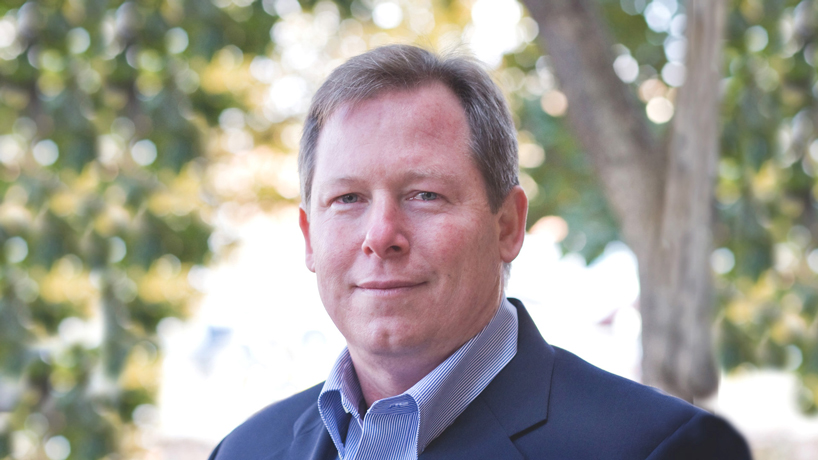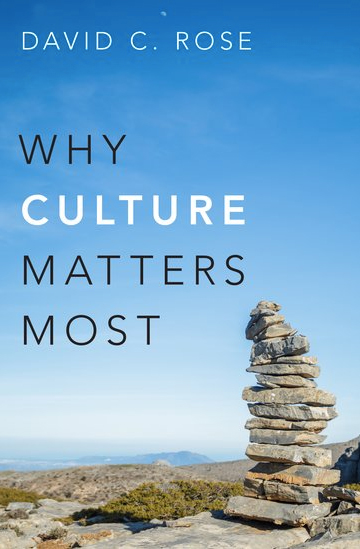
In his new book, “Why Culture Matters Most,” Department of Economics Professor David Rose argues that culture – even more than genes, geography, institutions or policies – is key to creating and maintaining the type of high-trust society that deters polarization and allows free market democracy to flourish. (Photo by August Jennewein)
David Rose is firm in his belief that free market democracies are the greatest achievements of western civilization.
“They make us rich, and they make us free,” said Rose, a professor in the Department of Economics at the University of Missouri–St. Louis. “Free market economies are tremendously productive. That’s what makes general prosperity possible, which is a very recent thing in human history. Democracy acts as a powerful check on tyranny. That protects our freedom.”
But that is only true if democracy is functioning as intended, so people trust that decisions are being made for the common good.
As Rose looks around the United States today, he sees trust eroding and democracy and the free market economy under strain with polarization continually increasing in American politics.
His thought-provoking new book, “Why Culture Matters Most,” released in December by Oxford University Press, outlines his belief that culture is the key to creating and maintaining the type of high-trust society that deters polarization and allows free market democracy to flourish.
“Democracy evolved in small groups and is stable in small groups,” Rose said. “But the only way you can have stable large-group democracy is if nearly everyone abides by certain kinds of moral beliefs that result in democracy never being used for political favoritism, no matter how well intentioned.”
In the book, Rose works out the characteristics that such beliefs must have. The beliefs are obviously a part of a society’s culture, and they must also be culturally transmitted so the present generation can produce a high-trust society for the next.
“Culture is this body of knowledge that’s transmitted from generation to generation through teaching and through imitation, not the genes,” Rose said.
He suggests that it’s culture, for the overwhelming majority of people, that makes untrustworthiness unacceptable. They’ve had that moral point reinforced so often throughout their childhood that it ceases to be a consideration.
Culture acts as a stronger deterrent than the threat of criminal prosecution could because moral restraint remains in force even when detection is impossible.
The book is particularly relevant because Rose shows that if the democratic process is not adequately constrained by culture, it inevitably leads to growing political tribalism and anger as is happening in the United States today. The book also offers some novel ways to combat this problem by repairing trust-producing culture.
The idea for “Why Culture Matters Most” grew from work Rose was doing in his first book, “The Moral Foundation of Economic Behavior,” also published by Oxford University Press in 2011.
“In that book, I had a chapter on culture,” Rose said. “As I was working on it, it got longer and more involved.”
He ultimately decided to scale back that chapter and set out to make culture the subject of a book all its own. In 2014, Rose received a large grant from the John Templeton Foundation to fund a sabbatical for the project. He received additional funding from the HFL Foundation and the Earhart Foundation.
Even before the book was published, he won praise from people such as Matt Ridley, author of “The Evolution of Everything” and “The Rational Optimist,” and from David Colander, the Christian A. Johnson Distinguished Professor of Economics at Middlebury College.
Ridley wrote: “In this insightful book, David Rose tackles the central paradox of human prosperity: that ‘thriving free market democracies are wellsprings of creativity and juggernauts of cooperation,’ yet they go against the grain of human nature, which evolved in small-group tribal societies.”
Rose presented at workshops and gave public lectures on three continents after the release of his first book. He expects to do even more with “Why Culture Matters Most.”
Media Coverage
The Charlie Brennan Show, KMOX (1120 AM)
Hancock and Kelley, KMOX (1120 AM)
The Marc Cox Show, KFTK (97.1 FM)















